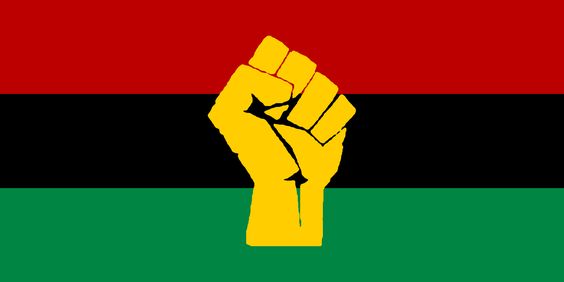
Written by Bolu Ayeaye, Member of the Operations & Communications Team
Image by the Universal Negro Improvement Association and African Communities League
Recent developments in global politics, notably the cooling relations between the USA and Russia and the recent military coup in Niger, present African nations with complex challenges that demand nuanced decision-making. It is a geopolitical landscape reminiscent of the Cold War era, where larger nations often positioned developing countries as pawns in their global chess game. But, this is not the 20th century, and nations like Nigeria should not allow themselves to be used as proxies, choosing instead to act in their own interests.
The intensifying global tension and power plays have far-reaching implications for Africa. Most notably, the recent military coup in Niger presents a critical case. The Economic Community of West African States (ECOWAS), heavily financed by Nigeria, has been considering armed intervention in Niger. This situation, however, requires careful examination, as it could ignite a war predominantly between Nigeria and Niger due to their geographic proximity.
However, Nigeria must consider potential ramifications of such an action, particularly the possibility of drawing international players like Russia and Wagner, a Russian private military contractor, into the mix in support of Niger. The prospective involvement of such forces could lead to Nigeria bearing substantial financial burdens to maintain its stance, considering the improbability of US Congress sanctioning unlimited arms supply to wage war against another country.
Moreover, Niger has been a crucial ally in Nigeria’s fight against terrorist groups, hosting over 303,000 Nigerian refugees. A conflict could compromise this strategic partnership and destabilize refugee settlements. Any push towards war by international forces should be considered a careful chess move, with the potential to leave Nigeria isolated in a conflict with its neighboring country.
Equally pertinent is the vulnerability of Nigeria’s bordering states, Sokoto, Zamfara, Katsina, Jigawa, and Yobe, which would bear the brunt of any cross-border conflict. It is crucial to remember that when military coups transpired in Guinea, Mali, Burkina Faso, and Chad, there were no reactive military actions. The question then arises, why should Niger’s case be different? More so, the American and French military bases stationed in Niger did not intervene during the coup. Their apparent support for war seems contradictory and a potential cause for concern.
Furthermore, African nations need to draw lessons from global events as well as history. Russia has more men and weapons than Ukraine and have faced a protracted fight there, costing them billions, the USA were much better prepared and armed than Vietnam yet faced a humiliating defeat there. Saudi Arabia’s protracted and costly involvement in Yemen and the enduring military regime in Myanmar, despite international outcry, are cogent reminders of the complexities and financial implications of military interventions. Nigeria is dealing with Boko Haram as well as other internal rogue state actors, a badly timed invasion could destroy the thin fabric of Nigeria and the entire West Africa’s security. In Nigeria’s context, homegrown terrorism poses an ongoing internal challenge. Instead of courting potential war fronts, Nigeria needs to focus on strengthening its internal security and developing sustainable solutions to these endemic issues.
The ECOWAS’ move against Niger could also potentially trigger a domino effect, prompting forces from Mali, Burkina Faso, and Guinea to back Niger and attack Nigerian territories. Thus, the Nigerian government, under President Tinubu’s leadership, should continue fostering dialogue with the military authorities in Niger instead of resorting to war.
African nations, more than ever, need to chart their own course in international politics. This means resisting the temptation to act as surrogates for larger powers, prioritizing their national interests, and fostering peace within and beyond their borders. As history has shown, the people of Niger, like all Africans, are resilient and capable. If they desire to shake off military rule, they should be supported in their struggle for democracy, not used as pawns in a proxy war.
